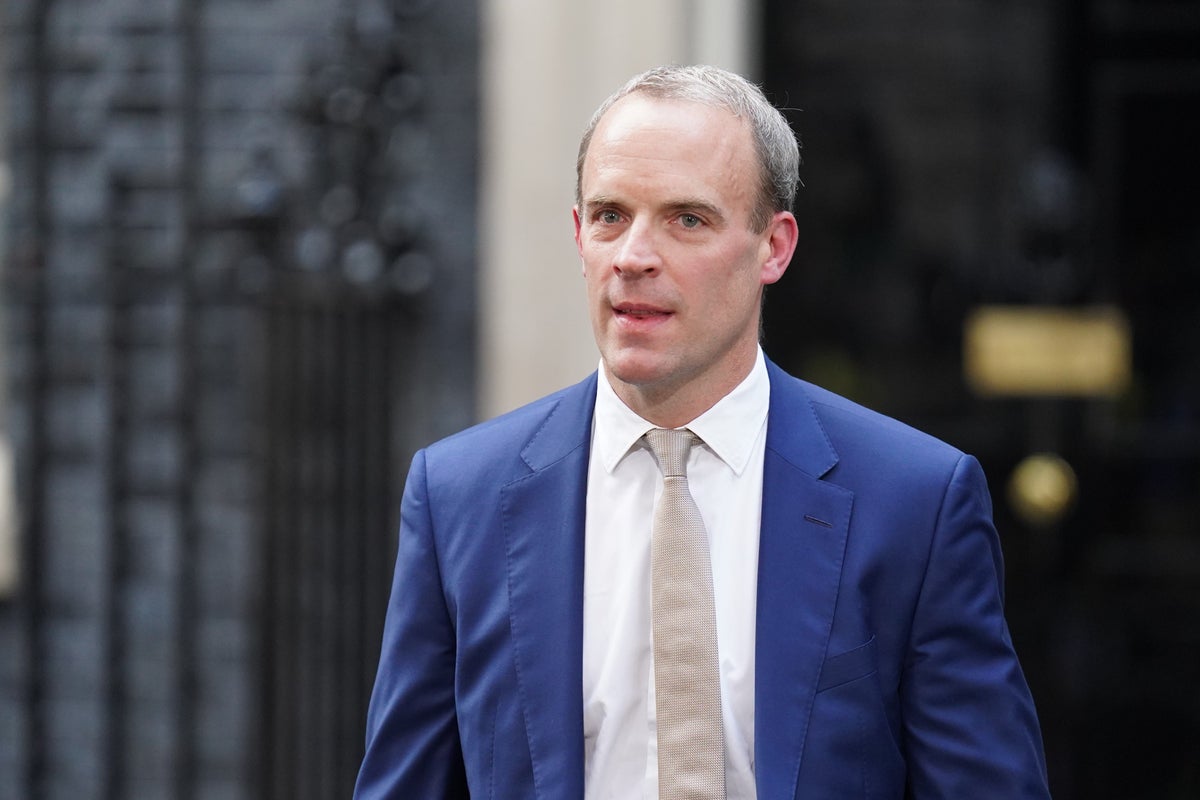
Senior representatives of large law firms and key stakeholders in the City of London have expressed “considerable concern” about the unintended consequences of the Bill of Rights on businesses.
Stephen Denyer, the Law Society’s director of strategic relationships, told the PA news agency that there is a “widespread feeling amongst businesses that the Bill presents an unnecessary risk and problem”.
The Bill of Rights will return to Parliament “sooner rather than later”, the PA news agency understands, with a date still to be officially confirmed.
Dominic Raab had introduced the Bill during his first stint as justice secretary but it was then shelved by Liz Truss’s short-lived government.
Now back in the Cabinet, Mr Raab is set to revive it as part of the Government’s strategy to deal with the crisis of migrant small boats crossing the English Channel.
Mr Denyer, who is responsible for the Law Society’s strategic relationship with leading stakeholders in private practice, said: “I have discussed the Bill of Rights with senior representatives of more than 30 large City law firms and representatives of key City stakeholders.
“Overall, the people I have spoken to have expressed considerable concern about the unintended consequences of some of the provisions of the Bill, particularly around the impact on the UK’s economic competitiveness and the standing of English law and jurisdiction internationally.”
City lawyers who deal extensively with foreign clients, regulators, representative bodies and governments tell me that all of these counterparties are greeting some of the provisions of the Bill with a mixture of surprise and horror— Stephen Denyer
The proposed legislation, which was in the Conservative Party manifesto, would give legal supremacy to the UK Supreme Court and make it explicit that UK courts can disregard rulings from the European Court of Human Rights.
Mr Denyer claimed “there is universal concern” that provisions in the Bill will “alter the relationship between the courts and Parliament in a way which would be perceived by business as removing legal protections they use to protect their rights when dealing with the state”.
Given the extent of business dealings that involve the state in one capacity or another, he said anything that reduces state accountability for rights breaches also has “a business impact”.
“A similar concern also arising in relation to the potential for increased divergence from the European Court of Human Rights and our international obligations on rights protections.
“These things could have a negative impact on the UK’s economic competitiveness, as global businesses would view the UK as a riskier place to invest and do business”, he added.
Mr Denyer also insisted there is concern in the City that any perceived weakening of human rights standards in the UK “would be used by our international competitor jurisdictions as an opportunity to persuade foreign entities not to choose English law and jurisdiction in respect of cross-border transactions and dispute”.
He explained: “City lawyers who deal extensively with foreign clients, regulators, representative bodies and governments tell me that all of these counterparties are greeting some of the provisions of the Bill with a mixture of surprise and horror.
“When taken together with other measures that are inconsistent with the UK’s established approach to its international obligations, this would have long-term negative consequences.”
When asked if there is anything the Government could do to address the issues raised by the City stakeholders, Mr Denyer said: “It comes from a lot of different provisions in the Bill, so it would need quite a comprehensive rewrite to assuage these concerns. “
Commenting on the director of strategic relationships’ findings , shadow justice secretary Steve Reed told PA the Conservatives “cannot be trusted with the economy” and that “businesses know that the Tories’ Bill of Rights is, in reality, a rights’ reduction charter”.
Mr Reed added: “Its effect would be disastrous and chilling, denying British people and businesses the right to challenge Government failure in the British courts, and setting the UK on a collision course with the United States by undermining the Good Friday Agreement that brought peace to Northern Ireland.
“The Tories’ Bill is bad for business and bad for Britain.”
A Ministry of Justice spokesperson said: “The Government is steadfastly committed to protecting human rights at home and abroad, and there is nothing in the Bill of Rights to undermine businesses’ existing rights.
“The Bill will strengthen human rights, such as freedom of expression, and confirm Parliament’s rightful role as the ultimate law-maker in the UK.”







